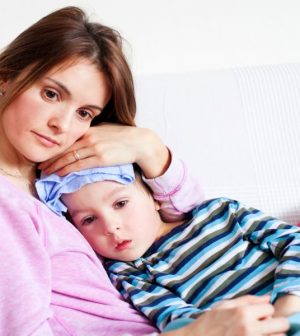- Could Your Grocery Store Meat Be Causing Recurring UTIs?
- Are You Making This Expensive Thermostat Error This Winter?
- Recognizing the Signs of Hypothyroidism
- 10 Strategies to Overcome Insomnia
- Could Artificial Sweeteners Be Aging the Brain Faster?
- Techniques for Soothing Your Nervous System
- Does the Water in Your House Smell Funny? Here’s Why
- Can a Daily Dose of Apple Cider Vinegar Actually Aid Weight Loss?
- 6 Health Beverages That Can Actually Spike Your Blood Sugar
- Treatment Options for Social Anxiety Disorder
Health Care Workers Mixed on Using Medical Marijuana in Kids

When it comes to kids with cancer, most health care providers who care for them say they’d help their patients get medical marijuana.
That finding stems from an analysis of survey responses from 288 doctors, nurse practitioners, physician assistants, psychologists, social workers and registered nurses. The survey respondents — in Boston, Chicago and Seattle — all provide either inpatient or outpatient care for children with cancer.
About 92 percent said they’d be willing to help procure medical marijuana for their young patients. Just 2 percent felt that medical marijuana should never be given to a child with cancer, according to the report.
The researchers also found that 63 percent of the health care providers were not concerned about substance abuse in children with cancer. Their biggest concern was the lack of formulation, dosing and potency standards for prescribing medical marijuana to children with cancer.
Medical providers who are legally eligible to certify patients for medical marijuana were less likely to endorse its use in children with cancer, the study found.
“It is not surprising that providers who are eligible to certify for medical marijuana were more cautious about recommending it, given that their licensure could be jeopardized due to federal prohibition,” study co-author Dr. Kelly Michelson, a critical care physician at Lurie Children’s Hospital of Chicago, said in a hospital news release.
“Institutional policies also may have influenced their attitudes,” she said. “Lurie Children’s, for example, prohibits pediatric providers from facilitating medical marijuana access in accordance with the federal law, even though it is legal in Illinois.
“In addition to unclear dosage guidelines, the lack of high-quality scientific data that medical marijuana benefits outweigh possible harm is a huge concern for providers accustomed to evidence-based practice,” Michelson said.
“We need rigorously designed clinical trials on the use of medical marijuana in children with cancer,” she added.
Michelson also directs Northwestern University School of Medicine’s Center for Bioethics and Medical Humanities.
The childhood cancer care providers involved in the study indicated that they often received requests for medical marijuana to relieve nausea and vomiting, lack of appetite, pain, depression and anxiety. Most, however, believe that use of medical marijuana should be limited to children with advanced cancer or near the end of life, rather than in earlier stages of cancer treatment.
That’s in line with the American Academy of Pediatrics’ position that use of medical marijuana should be restricted to “children with life-limiting or seriously debilitating conditions.”
Michelson’s team published their findings online Dec. 12 in the journal Pediatrics.
More information
The U.S. National Cancer Institute has more on cancer in children and teens.
Source: HealthDay
Copyright © 2026 HealthDay. All rights reserved.










